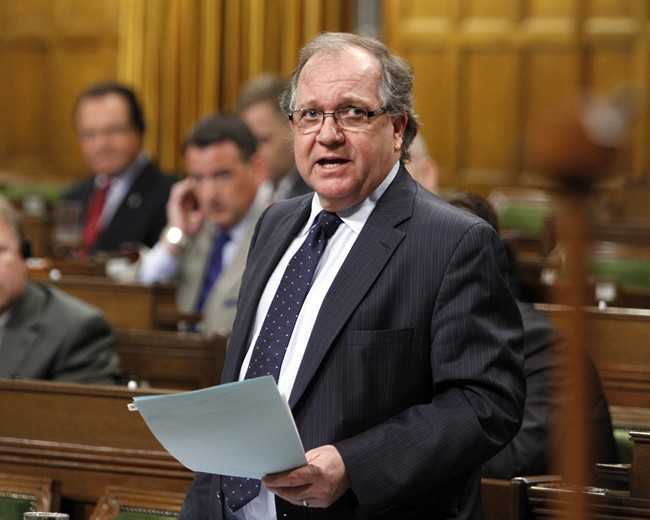OTTAWA – Two government departments went too far in their monitoring of a First Nations children’s advocate and her personal Facebook page, federal Privacy Commissioner Jennifer Stoddart has found.

Stoddart was looking into a complaint filed by activist Cindy Blackstock, who is the executive director of the First Nations Child and Family Caring Society, an organization fighting the federal government in court over First Nations child welfare programs.
The commissioner found that Aboriginal Affairs and the Department of Justice seemed to violate the spirit of the Privacy Act when they compiled reams of information from Blackstock’s personal Facebook page.
“It raises the question: who else?” said NDP aboriginal affairs critic Jean Crowder.
Officials knew full well that they were delving into personal information, and not just Blackstock’s thoughts on child welfare policy, the report states.
However, the senior officials in charge of the First Nations child welfare dossier gave written permission to departmental information technicians to dig through all of Blackstock’s Facebook pages and collect screen shots and records of page excerpts for circulation to other government officials, Stoddart found.
Indeed, an Aboriginal Affairs IT worker filled out a “website access request form” to get approval from the lead lawyer on the case to comb through Blackstock’s personal Facebook page.
The permission was needed to bypass network security, the report explained.
- Canada’s dental plan has officially kicked in. Who is eligible?
- Mandatory breath samples now required in every Toronto-area traffic stop: OPP
- Tories grill Liberals in question period about minister’s ties to lobbyist, PPE company
- N.S. mother ‘in shock’ after enduring 17-hour hospital wait with sick baby
At the same time, Blackstock was making obvious efforts to better secure her personal information on her Facebook page, making it clear that the government attention was not welcome, the report added.
“It is not obviously clear what relevance the personal information available on the complainant’s personal Facebook page could have had to (Aboriginal Affairs’) policy development, or the government’s defence of the Caring Society’s human rights claim,” Stoddart’s report states.
“The lack of transparency surrounding the collection of personal information by the respondents from the complainant’s Facebook page would seem to violate the spirit, if not the letter of the act.”
The decision shows that even if information is somehow publicly available, the government can’t just go and collect it in an organized fashion, explained Blackstock’s lawyer, Paul Champ. Rather, personal information can only be gathered for a specific, appropriate purpose.
Government officials told the commissioner they needed to monitor Blackstock because she had posted some court-related material that had been deemed privileged. However, Stoddart’s investigation finds that the monitoring of Blackstock’s personal information began before she had posted the material in question.
Aboriginal Affairs and the Department of Justice have agreed to cease and desist such monitoring, destroy any personal information not directly linked to federal policy, and set up a new system to make sure such surveillance does not happen again.
“The fact of the matter is that we take Canadians’ right to privacy very seriously,” Aboriginal Affairs Minister Bernard Valcourt said during question period.
“Most of the recommendations, if not all, were already being implemented. We shall fully implement the recommendations of the commissioner.”
Stoddart found no merit to two other privacy complaints from Blackstock. She ruled that government monitoring of Blackstock’s speaking engagements was an acceptable activity for officials in their policy work. And she ruled that since there is no public record of government officials accessing the Indian status record database, she could not agree with Blackstock that her privacy was invaded.
In an interview, Blackstock said the report proves the government will go to great lengths to quash dissent, and she wonders who else federal departments are spying on.
“It makes me wonder how systematic this is,” she said. “All I do is, I speak up for kids.”
She first twigged to the extensive government surveillance in 2009 when government officials said they would not attend a meeting of Ontario chiefs if she were in the room. Blackstock requested that Aboriginal Affairs hand over all their monitoring of her, and by August 2011, she had received several hundred pages of records.
“It worried me in the first instance and even spooks me up until today,” Blackstock said.
She compiled a list of 189 officials taking notes and following up on her daily life, tracking everything from cookie recipes to the co-ordinates of her extended family members.
The commissioner’s report finds that the government can engage in a certain amount of monitoring. Keeping tabs on speeches and professional Facebook pages is fine, but delving into personal contacts, family ties and commentary on daily life crosses a boundary.
“The findings of our investigation do not suggest a reasonable basis for collecting certain unrelated pieces of personal information gathered from the complainant’s personal Facebook page, particularly information related to the complainant’s friends, personal views, skills, interests and residency,” the report states.
“In our view, such information is not obviously relevant to either policy development or the litigation in question.”
Blackstock’s organization has been in a legal battle with Ottawa since 2007, arguing that the federal government is discriminating against First Nations children by refusing to provide support at the same level as provincial governments.
The dispute is now before the Canadian Human Rights Tribunal.
The government surveillance throws into question Ottawa’s willingness to find a solution for underfunding of child welfare, said Shawn Atleo, national chief of the Assembly of First Nations.
“What does this have to do with transforming the lives of children right now?… Are we going to continue to battle at the human rights tribunal over the rights of children?” Atleo said in an interview.
“We’re talking about our most vulnerable: children.”



Comments